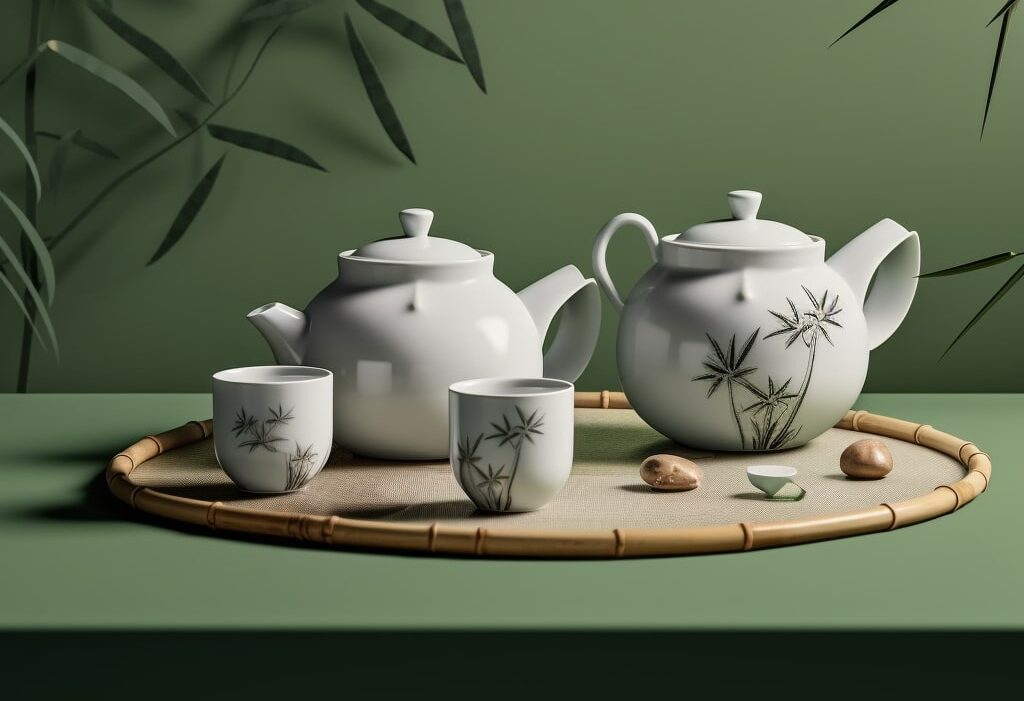Bamboo tea boasts a rich nutritional profile, containing vitamins, minerals, antioxidants, and silica, which is known for its role in maintaining strong and healthy hair. Scientific research suggests that these compounds may help enhance blood circulation to the scalp, nourish hair follicles, and reduce hair loss.
In this article, we will explore the nutritional profile of bamboo tea, delve into the scientific evidence behind its potential benefits for hair growth, and provide insights on how to incorporate bamboo tea into your hair care routine.
Key Takeaways
- Bamboo tea is a traditional herbal remedy believed to promote hair growth.
- It is rich in vitamins, minerals, antioxidants, and silica that support healthy hair follicles and stimulate hair growth.
- Scientific research suggests that bamboo tea can enhance blood circulation to the scalp and reduce hair loss.
- Further scientific studies are needed to fully understand the benefits of bamboo tea for hair growth.
Introduction
Bamboo tea, derived from the leaves and stalks of the bamboo plant, has gained popularity as a natural remedy for hair-related issues. It is rich in silica, an essential mineral known to strengthen hair follicles and promote healthy hair growth. Silica plays a crucial role in maintaining the integrity of the hair shaft and may help prevent hair thinning and breakage.
Additionally, bamboo tea is believed to have antioxidant properties that can protect the hair from damage caused by environmental factors and oxidative stress. It also contains essential vitamins and minerals that nourish the scalp and hair follicles, creating an optimal environment for hair growth.
While more research is needed to fully understand the extent of bamboo tea’s benefits for hair growth, its potential as a natural remedy is promising.
What is Bamboo Tea?
Originating from the plant species known for its versatility and numerous applications, bamboo tea is a beverage that has gained attention for its potential benefits in promoting healthy hair.
Bamboo tea is made from the leaves, stems, and shoots of the bamboo plant. It is rich in silica, an essential mineral that is known to strengthen hair strands and improve hair elasticity. Additionally, bamboo tea is packed with antioxidants, which can help protect hair follicles from damage caused by free radicals. The tea also contains vitamins and minerals such as potassium, calcium, and manganese, which are vital for maintaining healthy hair growth.
Regular consumption of bamboo tea may contribute to stronger, shinier, and more resilient hair.
Nutritional Profile of Bamboo Tea
Bamboo tea is rich in various nutrients that can contribute to overall health and potentially promote hair growth.
It contains essential vitamins such as vitamin A, vitamin C, and vitamin E, which are known to support hair health and stimulate growth. Additionally, bamboo tea is a good source of minerals like silica and manganese, which are vital for the production of collagen and keratin, the proteins that make up the hair structure. Silica, in particular, has been linked to increased hair thickness and strength.
Moreover, bamboo tea is known for its antioxidant properties, which can help protect hair follicles from damage caused by free radicals. Overall, the nutritional profile of bamboo tea suggests that it may have potential benefits for promoting hair growth and maintaining healthy hair.
The Science Behind Bamboo Tea Being Good For Hair
Research has shown a correlation between the consumption of bamboo tea and improvements in the health and density of hair follicles. Bamboo tea is rich in silica, a mineral known to promote hair growth and strengthen hair follicles. Silica helps to maintain the structural integrity of hair, preventing breakage and promoting healthy growth.

In addition to silica, bamboo tea also contains antioxidants that protect hair follicles from damage caused by free radicals. These antioxidants help to reduce inflammation and improve blood circulation to the scalp, which can further enhance hair growth.
Furthermore, a number of vitamins and minerals that are essential for healthy hair, such as vitamin E, biotin, and zinc, are found in bamboo tea. Regular consumption of bamboo tea can therefore provide numerous benefits for hair health and promote hair growth.
How to Incorporate Bamboo Tea into Your Hair Care Routine
To include bamboo tea in your hair care routine, you can simply consume it as you would any other black or herbal tea. You can choose either bamboo leaf tea (loose) or bamboo tea bags. Here are the basics:
Ingredients:
- 1 teaspoon of loose leaf bamboo tea (preferably organic bamboo tea)
- 8 ounces (250ml) of water
- 1 teaspoon of honey (our preference) or other type of sweetener
- 1 wedge of lemon (optional)
Steps:
- Add loose leaf bamboo tea to a teapot.
- Boil the water and pour into the teapot.
- Allow tea to brew for several minutes.
- Filter the liquid using a sieve or strainer.
- Add honey or other sweetener.
- Add lemon for flavor as desired.
If you use a tea bag, simply brew that in your cup. Add honey or other sweetener and lemon as above.



Bamboo tea has a neutral aroma and taste, so it blends well with various flavors. So why not get creative and try blending your bamboo tea with other herbal tea flavors?
How much Bamboo Tea is Enough, or Too Much
There is limited scientific research on what is the optimal amount of bamboo tea thicker hair growth and stronger hair. However, consistency is likely important. One to three cups of bamboo tea every day is likely to be more effective (and more achievable) than ten cups one day each week.
Potential Side Effects and Considerations
Incorporating bamboo tea into one’s routine requires consideration of potential adverse effects and other important factors. While bamboo tea is known for its potential benefits in promoting hair growth, there are a few possible side effects that individuals should be aware of:
- Digestive issues: Some people may experience gastrointestinal discomfort, such as stomach upset or diarrhea, when consuming bamboo tea. This could be due to its high fiber content or the presence of certain compounds in the tea.
- Allergic reactions: Bamboo is a member of the grass family, and individuals with grass allergies may experience allergic reactions when consuming bamboo tea.
Overall, while bamboo tea can be beneficial for hair growth, it is important to be aware of these potential side effects and consider them before adding bamboo tea to your hair care routine.
Frequently Asked Questions
Can bamboo tea be used for hair growth in men?
Natural remedies for hair growth in men using bamboo tea have not been scientifically proven. While bamboo tea is rich in nutrients, there is no concrete evidence to support its effectiveness in promoting hair growth in men.
Is bamboo tea suitable for all hair types?
Bamboo tea may be suitable for all hair types as part of a hair care routine. It is important to note that the effectiveness of bamboo tea for hair growth in men or women may vary depending on individual factors and further research is needed for conclusive evidence.
Can bamboo tea help with hair loss caused by medical conditions?
Alternative treatments for hair loss caused by medical conditions include bamboo tea. Scientific research suggests that bamboo tea may help stimulate hair growth and reduce hair loss by promoting blood circulation, providing essential nutrients, and improving scalp health.
How long does it take to see results from drinking bamboo tea for hair growth?
Results from incorporating bamboo tea into a hair care routine for hair growth may vary. It is important to note that factors such as individual genetics, overall health, and adherence to a consistent hair care routine can influence the time frame in which results are observed.
Are there any specific dosage recommendations for consuming bamboo tea for hair growth?
Dosage recommendations for promoting hair growth through bamboo tea are not well-established. However, certain compounds found in bamboo, such as silica, may contribute to hair health. Further research is needed to determine optimal dosages for hair growth benefits.
Conclusion
In conclusion, bamboo tea may have potential benefits for hair growth due to its rich nutritional profile and the presence of silica, which is known to promote hair health.
While there is limited scientific research specifically on bamboo tea and hair growth, some anecdotal evidence suggests positive results.
It is important to remember that individual experiences may vary, and it is always best to consult with a healthcare professional before incorporating bamboo tea into your hair care routine. Additionally, potential side effects and considerations should be taken into account.

